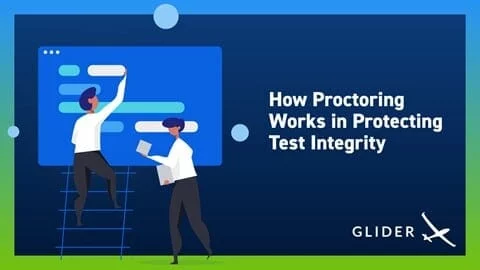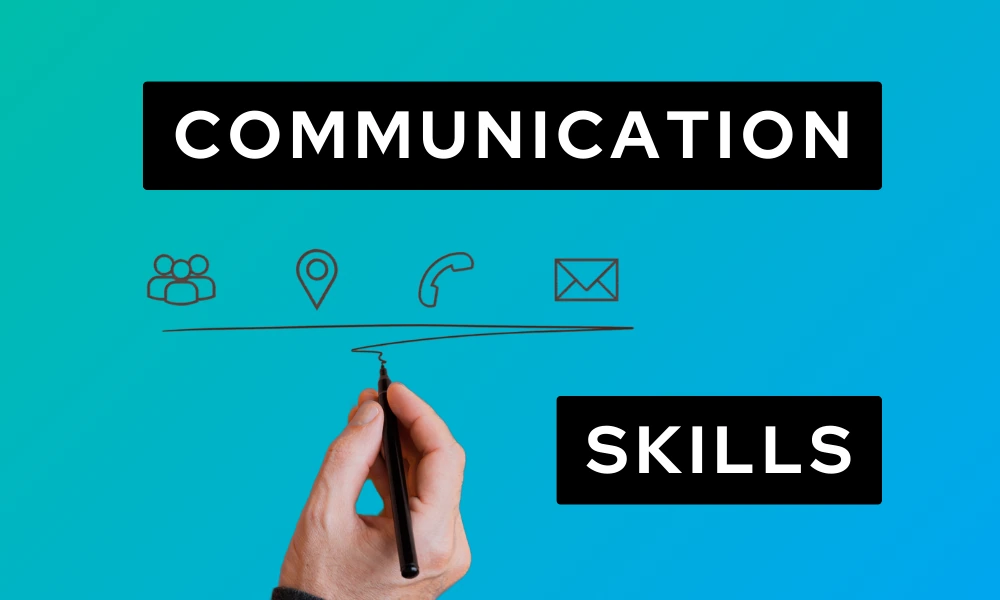Proctoring has gained immense demand nowadays, thanks to remote hiring and virtual interviews. Be it academic examinations or job interviews, many institutions and organizations rely on proctoring. As proctoring works in protecting test integrity, it has become the ultimate tech platform that conducts tests and assessments anywhere and anytime.
Proctoring ensures integrity and prevents cheating while pledging to the total privacy of the test candidates.
Proctoring is not a new invention. It is in existence since the time, ‘examinations’ were there. Since it is a natural tendency for humans to cheat and deceive in the absence of a supervisor, proctoring acts as a shield against candidate fraud, cheating and other malpractice activities.
What is Proctoring?
The term has been in existence since 14th Century. Originally, it referred to someone employed to manage the affairs of someone. Currently, the term refers to invigilation. Cambridge dictionary defines proctoring as, “an act to watch people taking an exam in order to check that they do not cheat.”
According to many surveys and reports, proctoring, the global remote proctoring system is seeing a huge leap in the coming years. The Online Exam Proctoring Market is expected to grow by 16.4% between 2020 and 2027.
With rising demand from different industries like academics, higher education, recruitment and several others, technological advances in proctoring are opening new avenues and gaining wider recognition.
The Online Proctored Exam in the 21st-century proctoring system can be classified into 3 types:
- Live or Real-time Proctoring: The classic case of human proctoring. A supervisor is present at the other end of the video assessment to monitor a candidate (or a group of them) during their assessment. From body language to cheating aids, everything is monitored.
- Recorded Proctoring: Instead of live monitoring, a candidate is assessed after the test concludes. The video recording is then assessed through human proctors.
- Auto-Proctoring: The most-advanced proctoring system. Requires almost no human interference. Algorithms easily detect any anomaly/fraud with utmost accuracy.
Besides these, there are 2 other proctoring types as well:
- Full-view Proctoring: A candidate’s full or complete view is monitored like his/her face, body movements, hands, gadgets. It is compatible with smartphones too.
- Face-view Proctoring: The webcam on the laptop monitors only his/her face. Other necessary elements are harder to capture.
How Do Candidates Violate Test Integrity?
You may ask why online proctoring is a necessity? Well, it’s not unusual to come across cheating in examinations or assessments. A candidate generally cheats in an assessment when he/she fails to come up with correct answers or solutions. But in no circumstance, it can be an excuse. Studies from Checkster.com have reported that about 78 percent of job applicants cheat or misrepresent themselves in hiring process.
In a similar alarming report, Glider Talent Intelligence also reported a 92 percent jump in candidate fraud in contingent and full-time hiring programs.
Some of the ways in which candidates cheat or violate test integrity are:
- Use of materials and aids
- External help
- Technical manipulation
- Misrepresentation or Impersonation
- Use of proxy servers
- Screen shares
- Software like auto coding
- External devices
- Excuses like poor connection to avoid webcam
- Deep fakes
Proctoring and Testing Integrity
There have been growing pieces of evidence against rising fraudulent activities in online tests and assessments. Students and candidates have dissolved integrity virtues without a second thought. While we agree with the apparent anxiety or urge to perform well and get qualified for the job, dishonesty and cheating are a complete no-no.
As the name goes, test integrity is beyond a candidate’s skills and academic excellence. A candidate’s test integrity also measures his/her attributes like honesty, behavior, ethics, professional attitude and important considerations. Any misconduct or violations of rules are frowned upon and such candidates are rejected from continuing their assessments.
What does Proctoring look in a Candidate’s Assessments?
Mindful of GDPR and other compliance, any proctoring system checks for the following during an assessment:
- Multifactor identity authentication
- A proctoring system generally measures the following
- Continuous screen monitoring
- Detection of alternative screens
- Disabling certain functionalities
- Plagiarism checks
- Presence of a proxy
- Performance assessment
- Assessment autoscoring
- Assessment recording
- Data privacy
How Does Proctoring Work in Protecting Test Integrity?
Though it is challenging to protect test integrity in times of remote and virtual assessment, proctoring takes extreme measures in preventing cheating and violation of rules during a candidate’s assessments.
The advancements in artificial intelligence (AI) have surged the benefits of online proctoring. AI has built up a notion that there is an invigilator to monitor his/her assessments similar to face-to-face exams.
But how does remote proctoring strengthen online assessment tests? Talent intelligence systems like Glider work in 360 ways to assess multiple areas to ensure test integrity. The following points in discussion give us a bird view of how proctoring mechanisms work :
Face Detection: It is done at the beginning to ensure authentication and to prevent impersonation. Multiple facial key points are captured during assessment.
Tracking Candidate’s Movements: Utmost necessary to track fraudulent activities, facial and body movements.
Comprehensive Monitoring Report: A detailed report on skills, behaviour analysis, cheating probability and performance assessment of the candidates.
Code Plagiarism Check: Copy pasted codes from other sources are cross-checked to review uniqueness.
Auto-flag Suspicious Activities: Video recording along with audio trials through webcam easily capture fraudulent submissions and even impersonations.
Integrity is one of the 15 things that money can’t buy, says T.Bennet, author of The Light in the Heart. In its finest essence, the proctoring system ensures test integrity is maintained end-to-end during a candidate’s assessment while allowing the flexibility of “anywhere and anytime” assessment.
The current scenario of recruitment and hiring has adopted virtual and online platforms for assessments. It is no surprise that they pose new and unique challenges to recruiters and hiring managers. Talent Intelligence companies like Glider strive hard to effectively encounter and nullify those challenges through advanced proctoring systems. Designed by experts, they are easy to work with and also simple to understand for both recruiters and candidates.



